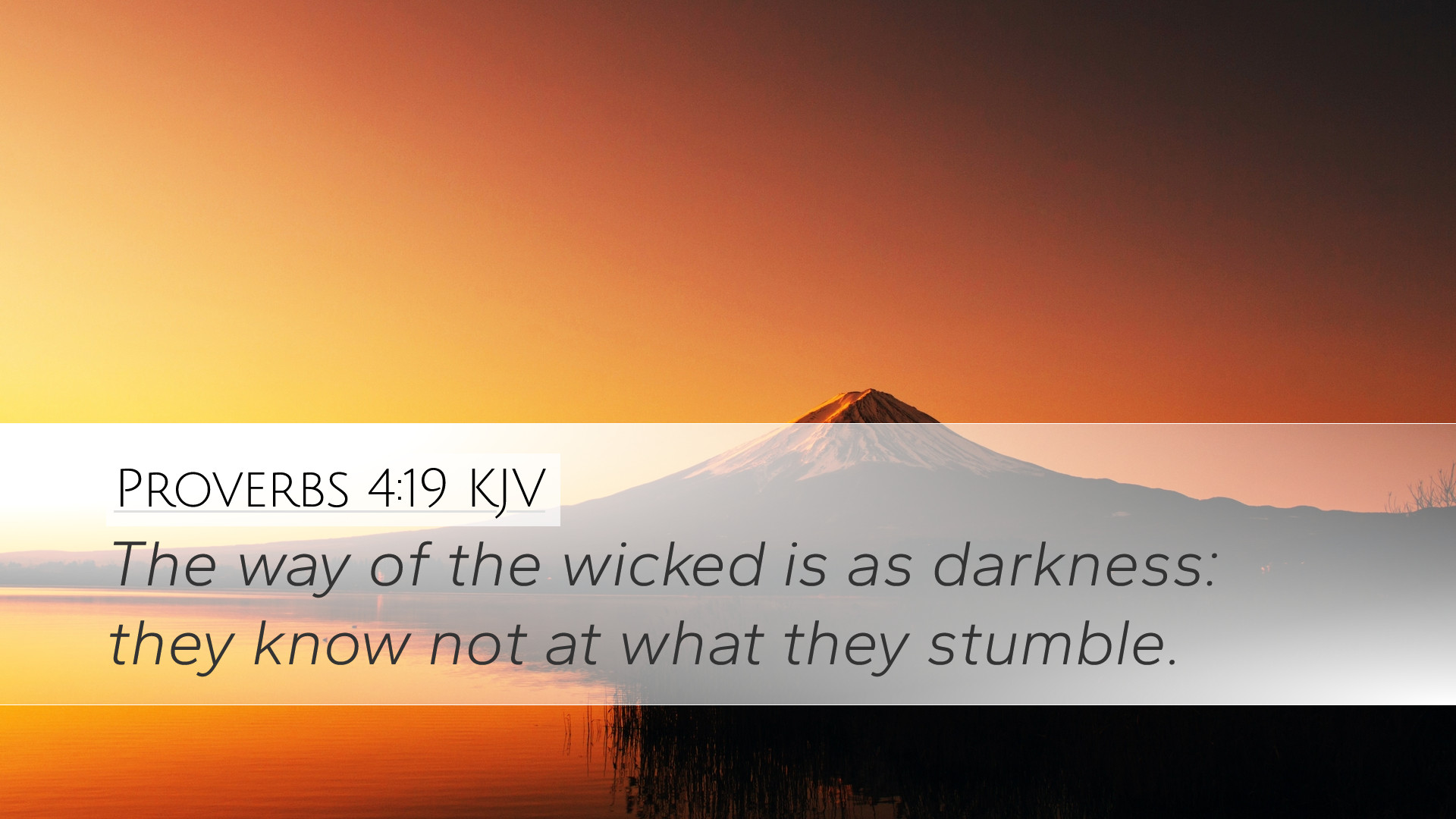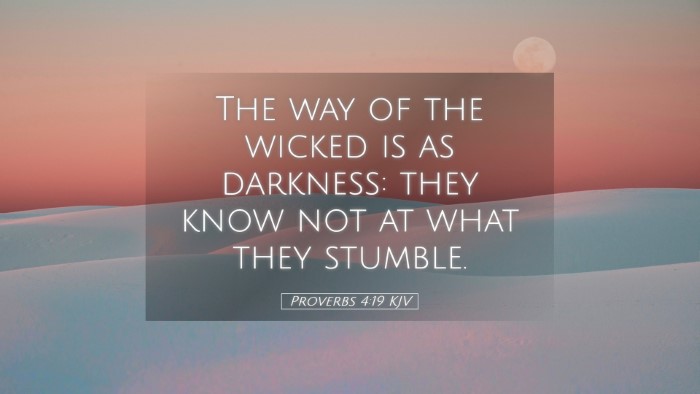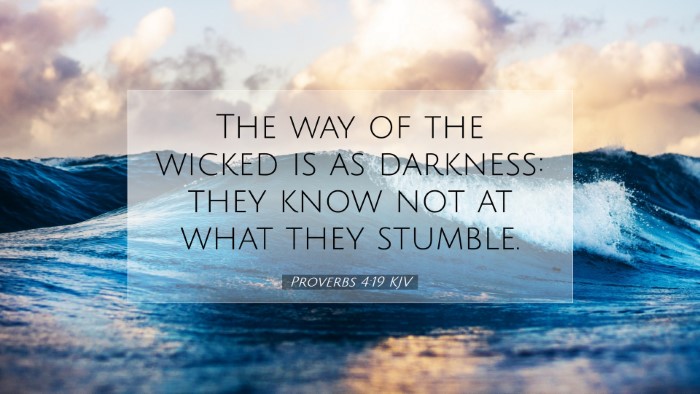Commentary on Proverbs 4:19
Proverbs 4:19 states, "The way of the wicked is as darkness: they know not at what they stumble." This verse encapsulates a profound truth regarding the nature of wickedness contrasted with the righteousness that wisdom brings. Below is a synthesis of insights from various public domain commentaries.
Understanding the Metaphor of Darkness
Matthew Henry points out that the "way of the wicked" is a pathway not illuminated by divine wisdom. Instead, it is shrouded in darkness, a symbol of ignorance and moral blindness. The imagery of darkness is often used throughout Scripture to denote sin and rebellion against God:
- Spiritual Blindness: Just as darkness prevents one from seeing physical obstacles, so does wickedness blind individuals to spiritual dangers.
- Uncertainty and Fear: Those who walk in darkness are surrounded by fears and uncertainties, never knowing what may lie ahead or the consequences of their actions.
The Nature of Wickedness
Albert Barnes elaborates on the implications of wicked behavior. He emphasizes that the route of the wicked is not only dangerous but also destructive. They stumble because they lack knowledge of the pitfalls of their conduct:
- Ignorance of the Consequences: Wicked individuals often fail to recognize the inevitable results of their actions, leading to spiritual and sometimes physical ruin.
- The Influence of Sin: Sin blinds the eyes; thus, the wicked are unaware of the true nature of their path.
Wisdom vs. Wickedness
Adam Clarke contrasts the experiences of the wise and the wicked. The wise walk in the light, understanding their direction, while the wicked wander aimlessly:
- Illumination from Wisdom: Wisdom, according to the Scriptures, is compared to light, providing clarity and protection. The wise are guided by the understanding and commands of God.
- Directionless Living: The wicked, devoid of such guidance, navigate life without moral bearings, constantly open to missteps.
The Consequences of Stumbling
Further, the phrase "they know not at what they stumble" suggests a deeper layer of truth. Barnes notes that wicked individuals often do not recognize the reasons for their struggles or failures. This idea points to:
- Failure to Recognize Sin: The wicked may experience calamities resulting from their actions but remain oblivious to the fact that their lifestyle choices are the root of their misfortune.
- The Need for Reflection: This verse encourages a moment of introspection; recognizing one’s faults is the first step towards redemption.
Application for Believers
This profound proverb serves as both a warning and an encouragement for those seeking to align their lives with God's will. Pastors, students, and theologians are called to consider the following applications:
- Awareness of Influences: Vigilance is required to ensure that both oneself and one’s congregation do not fall into patterns of wickedness.
- Encouragement towards Righteousness: Teach and counsel others towards wisdom, which leads to light and clarity in faith.
Concluding Reflections
In summary, Proverbs 4:19 serves as a stark reminder of the difference between the path of the wicked and that of the wise. Darkness typifies the descent into despair, while light through God's wisdom leads to a fruitful and illuminating life:
- A Call to Righteousness: Embrace wisdom and understand its power to direct your path.
- Awareness of the Deceptions of Sin: Reflect upon the ways darkness may cloud our understanding, prompting a reorientation towards God's truth.
As we meditate on this verse, let us pray for discernment and courage to walk in the light, while acknowledging the pitfalls of the wayward heart.


